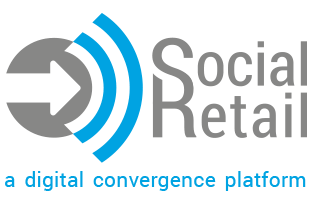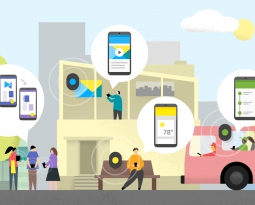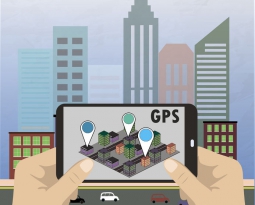Location-based marketing (LBM) is the future of advertising and large-scale marketing strategy. Brands all over the world are using LBM to enhance their ability to provide relevant, engaging and effective promotional campaigns, content and materials to customers. LBM can also provide invaluable data as to how a brandâs consumer market is organized and how it responds to various stimuli like promotions, new products and new branding angles.
Ultimately, LBM will help brands segment the market in ways that would have never been achievable before. Through this technology, brands will become smarter and consumers will become more informed as the boundaries between point-of-purchase and private spaces blur and ultimately merge seamlessly.
What Exactly Is Location Based Marketing?
LBM is a broad term for marketing and advertising techniques that emphasize position, spaces and proximity to points of purchase more so than other media forms or marketing approaches. Point-of-purchase displays can be seen as a primitive form of LBM, but newer forms are digitally-enabled to be more aware of the customerâs specific location and their typical traffic patterns.
Helping drive this new, all-digital form of LBM are location-based services (LBS) that use technology like geo-positioning as a core component of informing marketing decisions. Smartphones are the primary delivery method of information to brand strategies based on LBS. Mobile devices have features like GPS, cell tower positioning, WiFi access point tracking and other elements so brands can know with varying degrees where customers are located and where they are going. On the micro scale, Bluetooth low energy (BLE) beacons can tell where customers are positioned within a few yardsâ accuracy.
How Brands Are Using Location Based Marketing
Brands take advantage of these different LBS-enabled data streams in the short run to try and make targeted customer touch points that enhance their overall journey. The most common example is that a customer walking by a store will receive a coupon that expires within a few hours. Not wanting to miss out on the tempting offer, the customer enters the store rather than walking by.
Beacons can also create targeted offers that enhance displays placed near checkout lines, such as triggering differences in digital signage content based on the customerâs purchase habits or a particular item that can trigger the impulse to buy.
Looking more broadly, LBM connects brands to their customers in ways that would not have been possible before. Out-of-town patrons can be informed of a nearby store location via SMS as they enter a retail-focused area of town. Customers can receive automatic check-ins as they enter the store that add loyalty program currency. Another example would be a GPS guidance system that navigates a person through the mall to their car, helping them park closer to the stores they intend to visit while also opening the opportunity for them to walk by store fronts they would have otherwise missed.
All of these features are intended to add value to the consumer experience. Otherwise, customers would simply choose to opt-out. After all, nearly all existing LBM programs are permission-based, which can actually give brands more power in the long run.
In exchange for receiving personalized offers and an enhanced experience, customers yield some of their personal information so that brands can learn how to reach their target demographics more effectively. This data can also drive future marketing programs that are smarter, leaner and more adept at triggering the desired reaction from clientele.
To discover more about how location based marketing is blazing new trails in the retail industry, visit Digital Social Retailâs product page. Our digital convergence platform helps manage all customer touch points so that the power of LBM becomes simpler to harness than ever before.










